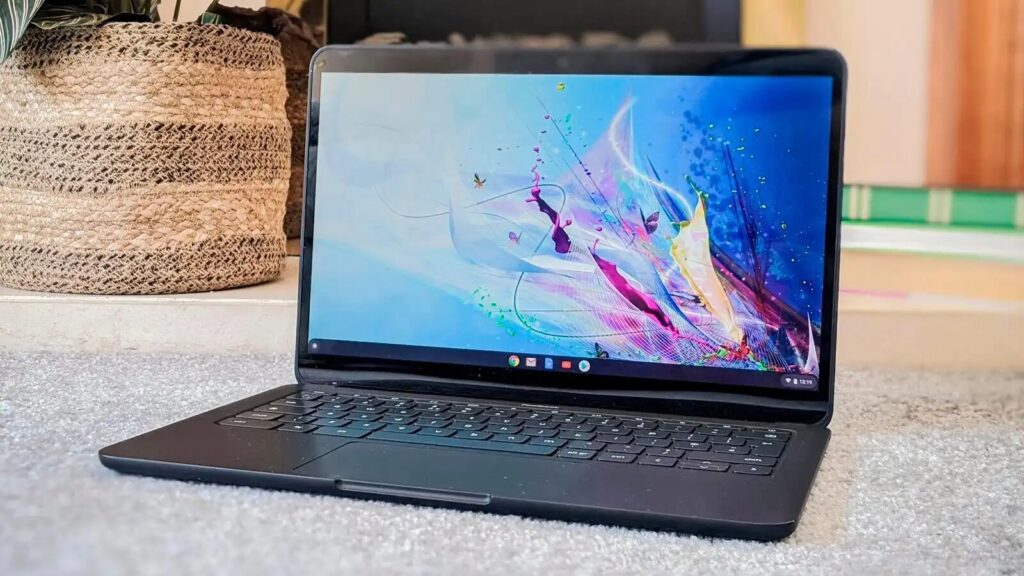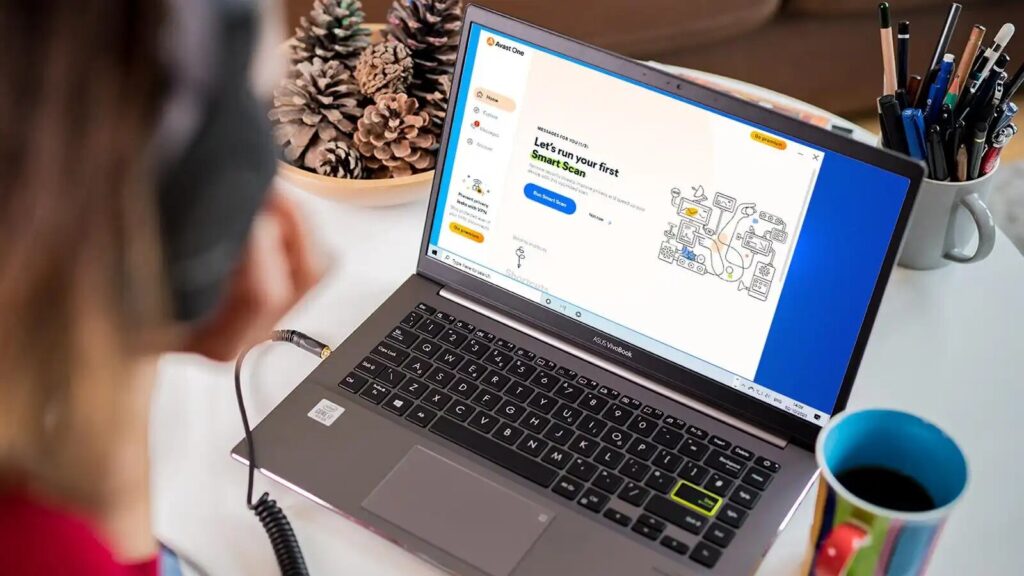If you’re wondering, do I need a virus software in Chromebook, you’re not alone. Many people assume that all computers, including Chromebooks, require traditional antivirus protection. But is that true?
Chromebooks have built-in security, so you usually don’t need antivirus software. Features like sandboxing, automatic updates, and Verified Boot keep them safe. However, using good browsing habits and avoiding suspicious links further enhances security.
Let’s explore Chromebook security and whether you really need virus software.
Understanding Chromebook’s Built-in Security!
Chromebooks come with a unique security approach that reduces the need for antivirus software. Here’s why:
- Sandboxing: Each application and tab runs in its own sandbox, isolating potential threats.
- Verified Boot: If a malicious file tries to alter the system, Chromebook detects and removes it.
- Automatic Updates: Google ensures the latest security patches are installed automatically.
- Limited User Access: Most users operate in a restricted environment, reducing the risk of system-wide infections.
Can Chromebooks Get Viruses?
Traditional computer viruses have a hard time infecting a Chromebook because of its highly secure operating system. Chrome OS is designed with multiple layers of protection, including sandboxing, automatic updates, and Verified Boot, making it extremely difficult for malware to take hold. Unlike Windows or macOS, which can be vulnerable to various types of malicious software, Chromebooks operate in a more controlled environment.

Each web page and application runs in its own separate space, reducing the risk of widespread infections. Even if a harmful file does manage to find its way onto a Chromebook, the system’s security measures prevent it from causing significant damage. This makes Chromebooks a safer choice for users who prioritize security without the need for additional antivirus software.
However, this does not mean that Chromebooks are completely immune to all online threats. While traditional viruses may struggle to penetrate Chrome OS, other cyber risks still exist. Phishing scams, for instance, can trick users into revealing personal information through fake websites or emails that appear legitimate. Malicious browser extensions can also pose a danger, as some may secretly track user activity or steal sensitive data.
Types of Threats That Can Affect a Chromebook!
Even though a Chromebook is highly secure, users should be cautious of:
- Phishing Attacks: Fake login pages tricking users into giving up credentials.
- Malicious Chrome Extensions: Some extensions can steal data.
- Fake Android Apps: Sideloaded apps from unknown sources may contain malware.
- Social Engineering Scams: Attackers trick users into revealing personal information.
Why Traditional Antivirus Software is Not Necessary for Chromebooks?
Chrome OS is designed with a highly secure, locked-down system, making traditional antivirus software largely unnecessary. Google has built multiple layers of protection into Chromebooks, ensuring that malware and viruses struggle to gain access. The operating system uses sandboxing, which isolates each app and web page, preventing malicious software from spreading. Additionally, automatic updates continuously patch vulnerabilities, keeping the system safeguarded against evolving threats. This built-in security structure means that Chromebooks remain protected without the need for third-party antivirus programs.
Google’s security measures go beyond just blocking malware; they actively prevent unauthorized changes to the system. With Verified Boot, a Chromebook scans itself every time it starts up, detecting and fixing any potential compromises. Even if harmful software manages to slip through, Powerwashing (a factory reset) restores the device to a clean state. These proactive security features make Chromebooks incredibly resilient against cyber threats, reducing the necessity for external antivirus software.
Read: Invesco Ai And Next Gen Software Etf – A Smart Investment In Ai And Technology Stocks!
When Do You Need Extra Security on a Chromebook?
While Chromebooks are generally secure, there are certain situations where additional security tools may be necessary. The table below highlights specific cases where extra protection is beneficial and the recommended security measures to consider.
| Scenario | Why Extra Security is Needed? | Recommended Security Measures |
| Business Users Handling Sensitive Data | Confidential files, customer information, and financial records may be targeted by cyber threats. | Use endpoint protection, VPNs, and encrypted cloud storage. |
| Running Linux via Crostini | Linux apps can introduce malware or security vulnerabilities. | Install a Linux-compatible antivirus and update software regularly. |
| Sideloading Apps from Non-Google Sources | Apps from unknown sources may contain malware or spyware. | Use a trusted malware scanner and avoid unverified apps. |
Best Practices to Keep Your Chromebook Secure!
To enhance your Chromebook’s security:
- Keep Chrome OS updated.
- Use Google Play Protect to scan Android apps.
- Avoid unknown extensions.
- Stay alert to phishing scams.
When Might You Need Additional Security Software?
For business users who handle sensitive data, additional security tools can provide an extra layer of protection. While Chromebooks are designed with strong built-in security features, businesses often deal with confidential files, customer information, and financial records. Using security software can help safeguard against potential threats, phishing attempts, and data breaches. Advanced security solutions, such as endpoint protection or VPNs, can add extra defense when working with highly sensitive data, ensuring that no unauthorized access compromises the system.

Another scenario where additional security tools may be necessary is when running Linux via Crostini. While Chrome OS itself is secure, enabling Linux opens up new possibilities, including the ability to install third-party applications that may not be verified by Google. This could expose the system to potential malware or security vulnerabilities. Similarly, sideloading apps from sources outside the Google Play Store increases the risk of downloading malicious software. In such cases, using antivirus software or other security measures can provide an added layer of safety, preventing harmful programs from affecting the Chromebook’s performance and security.
Best Security Extensions for Chromebook!
Consider installing these security-enhancing Chrome extensions:
- uBlock Origin – Blocks ads and trackers.
- HTTPS Everywhere – Ensures secure connections.
- Privacy Badger – Prevents tracking.
Using VPNs for Extra Security!
A VPN can:
- Protect privacy on public Wi-Fi.
- Hide browsing activity.
- Provide extra encryption for sensitive tasks.
Recommended VPNs include NordVPN, ExpressVPN, and ProtonVPN.
Read: Ai Governance Software – A Complete Guide For Businesses In 2025!
FAQs:
1. Can a Chromebook get hacked?
While rare, phishing and weak passwords can still be exploited.
2. Do I need a firewall on my Chromebook?
Chrome OS has built-in security, but a firewall may help in certain situations.
3. How do I check my Chromebook for malware?
Remove suspicious extensions and use Google Play Protect.
4. What security software does Google recommend for Chromebooks?
Google suggests built-in Chrome OS security and Play Protect.
5. Is it safe to use a Chromebook for online banking?
Yes, as long as you use strong passwords and secure networks.
Conclusion:
So, do I need a virus software in Chromebook? The answer is no in most cases. Chrome OS has built-in security features that make traditional antivirus software unnecessary. However, staying aware of online threats and practicing safe browsing habits will keep your Chromebook even more secure.
Also Read:
- What Is Global Tracking Software – A Complete Guide!
- List Of Amazon Softwares – Comprehensive Guide To Amazon’s Software Solutions!
- Whats The Lastest Software For An Ipod Touch – A Complete Guide!
- Best Ai Dj Software – The Ultimate Guide!
- Procurement Ai Software – Revolutionizing Supply Chain Management!










